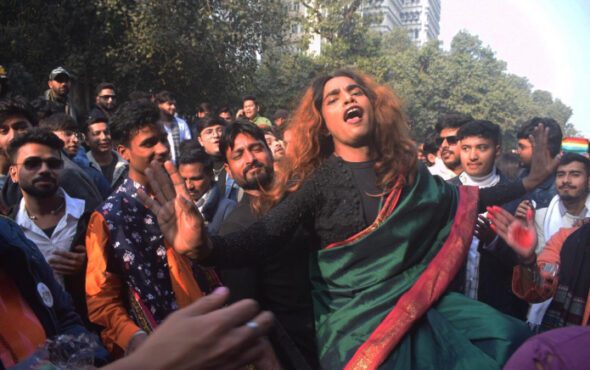
Thousands of LGBTQ+ people and their allies took to the streets of New Delhi, India on 8 January to march for same-sex marriage.
More than 2,000 people joined the Delhi Queer Pride March when it made its return after not taking place for the last three years due to the COVID-19 pandemic.
Protesters walked more than an hour so they could be near the country’s parliament, with the legalisation of same-sex marriage at the forefront of their minds as India edges closer to making it a reality.
Vishal Rai, a 23-year-old who got involved in the march, told Associated Press: “It’s good, it’s fabulous. Because we are here to celebrate ourselves, and after three years.”
It comes after the Indian Supreme Court heard arguments in favour of equal marriage last week.
The lead petition, which was filed by gay couple Supriyo Chakraborty and Abhay Dange, stated that denying these couples this right prevents them from being equal.
The second petition, filed by Parth Phiroze Mehrotra and Uday Raj, added that not allowing some citizens to get married because of their sexuality violates articles of the constitution.
“If the petitioners, as a same-sex couple, enjoyed access to the civil institution of marriage, they would not face untold practical difficulties, both vis-a-vis each other and their children,” part of it said.
“The denial of the fundamental right of marriage to persons like the petitioners is a complete violation of constitutional law.”
India does not currently recognise same-sex marriage officially, though couples are allowed to engage in an “unregistered cohabitation” – something that fulls incredibly short of the rights enjoyed by married heterosexual couples.



